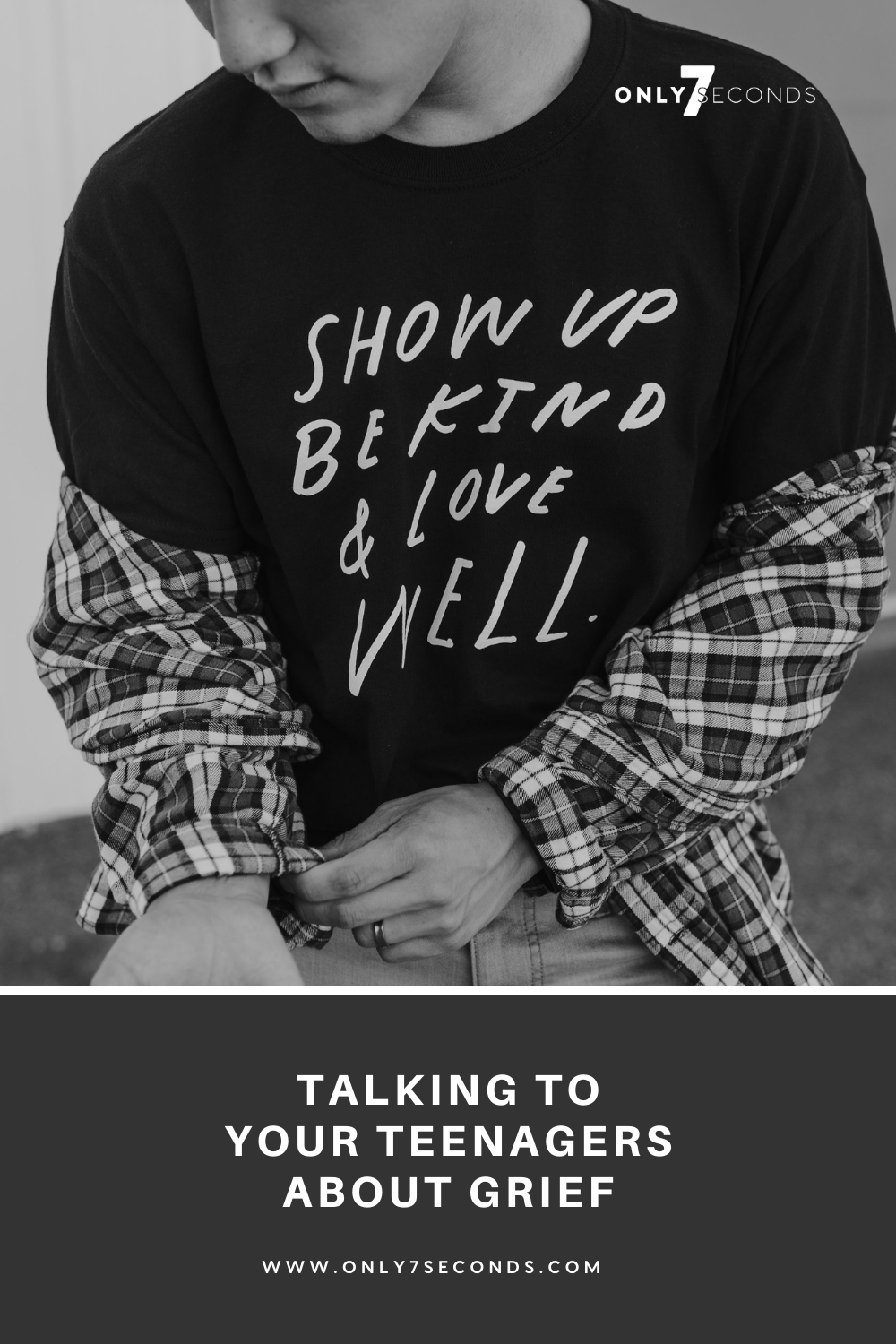As a people who desire meaning, asking the question “why?” is in our DNA. But when that question becomes “why did someone die?”, it gets pretty complex and painful. In the wake of tragic death, shock, confusion, numbness, anger, guilt, anxiety, and panic can come in waves leaving the one grieving struggling to find their footing.
We begin life connected and desire to keep that connection.
Any threat to connection can leave us feeling empty and lonely. When we encounter grief, it threatens this connection to others and often leaves us reeling.

What do I say to my teen as they grieve?
- Being willing to listen is often more important than having the right words to say. Support what they are thinking and feeling.
- Allow them to share their “loss” story in their own words and express any negative feelings- let them know that all those emotions are okay to feel.
- Validate them- “I can not imagine how hard this is for you right now.” Do your best to not invalidate their feelings by saying “I think you are overreacting” or “You have a great life”. This can make anyone feel like they are not heard.
- Make sure they know that you are listening to understand them, not to offer advice. Tell them that you love them.
- Let them know that they will survive this, but the pain and hurt is real. They will learn to cope but they don’t need to do it alone and life will get better. Remind them of hope.
- Talk about the person who died. Share ways they can process their feelings by journaling, talking with friends, talking with a professional, listening to music, etc.
- Lend them the strength and the hope for the future that you have.
What if I am worried my child might be suicidal or having thoughts of harming themselves?
Have you noticed any of these warning signs:
- Noticeable changes in eating or sleeping habits
- Unexplained or unusually severe, violent, or rebellious behavior
- Withdrawal from family or friends
- Sexual promiscuity, truancy, and vandalism
- Drastic personality change
- Agitation, restlessness, distress, or panicky behavior
- Talking or writing about committing suicide, even jokingly
- Giving away prized possessions
- Doing worse in school
**I also want to add that there are times when there may be no warning signs. That is why it is imperative that you stop and have a discussion about suicide with your children. Be brave enough to start the conversation.
If so, what should you do?
- Directly ask your child how they are doing and if you can help.
- Ask your child who they would turn to for help with a serious problem. Teens who don’t want to share problems with their friends often don’t know where to turn. Most parents would like their kids to come to them but should not take it personally if they choose not to. Some teens find it hard to share with their parents for various reasons. Most of the reasons they don’t want to share with their parents are due to their own perceptions (ie. don’t want to be a disappointment, afraid to disappoint etc). Simply be thankful that you can direct your teen to a trusted adult, family friend, youth group leader or counselor.
- If you are the trusted adult, simply follow the same guidance of listening to understand and validate their feelings.
- Take talk of suicide seriously and use the word suicide. Talking about suicide doesn’t cause suicide. Tell them that together you can develop a strategy to make things better. Ask if your child has a plan for suicide. If they confirm that, seek professional help immediately.
- Get professional help. A teen at risk of suicide needs professional help. Even when the immediate crisis passes, the risk of suicidal behavior remains high until new ways of dealing and coping with problems are learned.
- Do not be afraid to take your child to a hospital emergency room if it is clear that he or she is planning suicide. You may not be able to handle the situation on your own.
One way we honor the person we have lost is by taking this experience and their legacy and live out the love that they gave, showing the world what they taught us here on earth.
Grieving in community and connection is essential to truly feel and process grief. Do not try to do it alone.
Because you matter. And those around want to be there for you and with you.
Written by: Meghan Rush
Meghan Rush is licensed in the state of Washington as a Mental Health Counselor, currently providing care at Strength of Life Counseling Services in Wenatchee, Washington. Meghan received her Master of Arts in Professional Counseling through Liberty University. She also earned her B.A. in Psychology/Christian Counseling from Liberty University in Lynchburg, VA (2012).

View comments
+ Leave a comment